By Barbara Braver
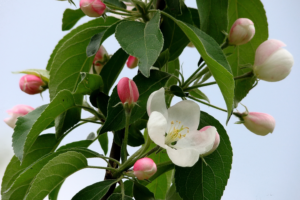 One morning some months ago – back when I assumed the coronavirus was going to be behind us before summer arrived –I went from asleep to awake and, with no conscious thought, a word was right there, caught in a drift of memory, perhaps from a dream. The word was apocalypse. My guess is that even in the early days of the pandemic I had a fearful concern about what might happen next. Since the word had “come to me,” so to speak, I decided to look it up. On checking the dictionary, I found that the first meaning of apocalypse is the final destruction of the world, and it can also relate to any “end time scenario.” I also discovered that it is an Ancient Greek word which literally means “an uncovering” – that is a disclosure: the revealing of things, the unfolding of things, the deeper knowing of things.
One morning some months ago – back when I assumed the coronavirus was going to be behind us before summer arrived –I went from asleep to awake and, with no conscious thought, a word was right there, caught in a drift of memory, perhaps from a dream. The word was apocalypse. My guess is that even in the early days of the pandemic I had a fearful concern about what might happen next. Since the word had “come to me,” so to speak, I decided to look it up. On checking the dictionary, I found that the first meaning of apocalypse is the final destruction of the world, and it can also relate to any “end time scenario.” I also discovered that it is an Ancient Greek word which literally means “an uncovering” – that is a disclosure: the revealing of things, the unfolding of things, the deeper knowing of things.
One revelation of these months for which we can give deep thanks is our nation’s shamefully overdue awakening to the evils of the systemic racism that scars this land and its people. We can give thanks as well for the revelation of the kindness of human hearts, as reflected in the sacrifices on behalf of us all being made by those who are selflessly caring for others.
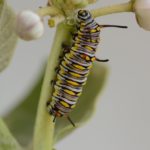 And, the whole notion of unfolding points out what we already actually know, which is that we live day to day completely clueless about how things might “unfold” – and what might happen next – in our lives, to those we love and in everything that matters to us. All questions of the future and how it might be are open – unanswered… As it happens, this is the human condition.
And, the whole notion of unfolding points out what we already actually know, which is that we live day to day completely clueless about how things might “unfold” – and what might happen next – in our lives, to those we love and in everything that matters to us. All questions of the future and how it might be are open – unanswered… As it happens, this is the human condition.
Rainer Maria Rilke, the Bohemian/Austrian poet and novelist who lived about the time of my grandmother Harriet, spanning a bit of both the 18th and 19th centuries, had something wise to say about this. He wrote that it is not necessarily a good idea to rush to answers to some of the questions before us about how our lives are to unfold in the days to come. He advises us to try to “love the questions themselves…” believing that perhaps we will “… live along some distant day into the answer.”
 I am not trying to be funny or obtuse here, but the truth is that day to day I am living the question of how best to live with all the questions I have about my continually unfolding life. And, these pandemic days have added a new dimension. One way would be to curl up in the fetal position and just let it all happen. Another would be to raise my hands up high, open my heart and hope for the best.
I am not trying to be funny or obtuse here, but the truth is that day to day I am living the question of how best to live with all the questions I have about my continually unfolding life. And, these pandemic days have added a new dimension. One way would be to curl up in the fetal position and just let it all happen. Another would be to raise my hands up high, open my heart and hope for the best.
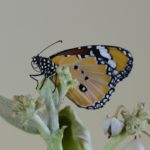 During my earthly days so far, I have lived the questions and waited for the revelation while holding close some degree of hope. Over these eight decades my own heart has unfolded enough to allow me to live knowing that what time I have, whatever days I have, are better spent expectant, hopeful, loving – living in the ineffable mystery of each day. My hope is that I will wake up each morning, or most mornings anyway – whether still full of sleep or ready to go – knowing I am loved. I pray to arise upheld and strengthened by the life-force love of the Divine, whose thumb print is on my soul, and who knows me, and who I am meant to become, far better than I know myself.
During my earthly days so far, I have lived the questions and waited for the revelation while holding close some degree of hope. Over these eight decades my own heart has unfolded enough to allow me to live knowing that what time I have, whatever days I have, are better spent expectant, hopeful, loving – living in the ineffable mystery of each day. My hope is that I will wake up each morning, or most mornings anyway – whether still full of sleep or ready to go – knowing I am loved. I pray to arise upheld and strengthened by the life-force love of the Divine, whose thumb print is on my soul, and who knows me, and who I am meant to become, far better than I know myself.
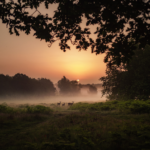 Morning moves on now, and my day unfolds. I am thinking first of coffee and maybe some blueberries on my granola this morning because the blueberries are there now, ready to be picked, and before we know it summer will have unfolded into autumn and then winter, and the blueberries will be all gone from the bushes outside. Maybe then I will want to get out there and catch snowflakes on my tongue. For now, I will just sit quietly right here, coffee mug in hand, knowing that the Love at the center of the Universe is with me as life and I continue to unfold. And perhaps, with the steadfast help of that Love, I will become ever more my truest self – who I am meant to be.
Morning moves on now, and my day unfolds. I am thinking first of coffee and maybe some blueberries on my granola this morning because the blueberries are there now, ready to be picked, and before we know it summer will have unfolded into autumn and then winter, and the blueberries will be all gone from the bushes outside. Maybe then I will want to get out there and catch snowflakes on my tongue. For now, I will just sit quietly right here, coffee mug in hand, knowing that the Love at the center of the Universe is with me as life and I continue to unfold. And perhaps, with the steadfast help of that Love, I will become ever more my truest self – who I am meant to be.
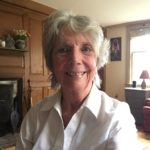 Barbara Braver grew up in Pittsburgh, Pennsylvania where at age 12 she started a one-page weekly newspaper called Neighborhood News. It lasted for a full summer, to the amusement of several indulgent neighbors. This was the beginning of the writing life. After college graduation she moved to the Boston area, drawn by romantic notions of Emerson, Thoreau and Louisa May Alcott. Though this might have been an insubstantial motive, she has never been disappointed. For most of her professional life, she worked for the Episcopal Church, including 18 years serving as the communication assistant for the Episcopal Church’s leader. Since retirement she continues writing, editing and leading retreats.
Barbara Braver grew up in Pittsburgh, Pennsylvania where at age 12 she started a one-page weekly newspaper called Neighborhood News. It lasted for a full summer, to the amusement of several indulgent neighbors. This was the beginning of the writing life. After college graduation she moved to the Boston area, drawn by romantic notions of Emerson, Thoreau and Louisa May Alcott. Though this might have been an insubstantial motive, she has never been disappointed. For most of her professional life, she worked for the Episcopal Church, including 18 years serving as the communication assistant for the Episcopal Church’s leader. Since retirement she continues writing, editing and leading retreats.



Dear Barbara Braver: l am SO pleased to learn of you. I thank Kathryn and David and International Integrators for arranging this opportunity. I want you to know l intensely appreciate your message.
The ninth decade has arrived (or is it the 10th at 89?) and l too find life becoming richer even though my previous life was thoroughly weighted with seamless riches. And as with you, much of it was dedicated to caring for others.
We too picked blueberries (yesterday) and another bucket awaits our picking anytime the need arises. We have nets protecting our crop since Cedar Waxwings await any carelessness. Buckets can be frozen and in winter we can be reminded of our blessings and the patience of Waxwings.
I am aware of the meaning of ‘apocalypse’ and have also mused on such a scenario for mankind. Yet as each day has unfolded, the symptoms l had associated with aging and musing, seem less irksome and a rebirth of exciting new sensibilities seems to have become a replacement. Perhaps this ‘uncovering’ is the consequence of our current exposure. We are currently living for the summer 15 miles off the coast Maine. Of course, the cherished one l live with here, may be contributing mightily to my emerging so positive outlook. Whatever the reality, thank you for your message. It fits..
Reading about your career, l would be amiss if l didn’t share an influential 5 year interlude of my youthful first decade or so: l was ‘treble’ in the
Episcopal Cathedral Choir of Western Massachusetts. This influential experience lasted until sometime around age 12, when l assume l decided not to become an ‘alto’. However, as an adult- music has resided deeply in my brain ever since. That may remain a plausible reason why reading ‘apocalypse’ suggests immediately to me that l search within my universe for a ‘deeper knowing’. Again: Thank you.
Dear Barbara,
Thank you. You are, simply put, an inspiration.
Now one leader I knew of in Episcopal “circles” is Bishop Spong. I recall writing a poem about him after hearing him speak. But that is not why I write.
Simply put, I will be looking for more of your writing in the future. My very best wishes to you and the gifts I know you will deliver to the Sunday group session.
Sincerely, with peace,
Ruth Sayward